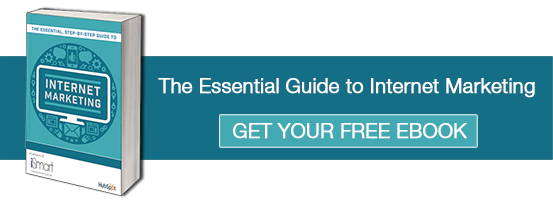
Simple Steps to Track the Effectiveness of your Marketing Campaigns
February 14, 2018
5 Easy Ways to Optimize Your Website For Lead Generation
February 23, 2018 
The marketing world is in the middle of five major disruptions that are reshaping the industry as we know it. One of it being the rise of Artificial Intelligence. This topic has been around for the past few years but it is expected to grow bigger in 2018.
So what is Artificial Intelligence (AI)? Artificial intelligence is the study (and building) of systems that can make intelligent decisions which would be considered smart if performed by a human.
These trends are dramatically altering the digital landscape in which businesses operate, changing how brands function internally and how they engage with customers. Delivering the right message, to the right person, at the right time will enable marketers to create quality brand experiences, increase customer lifetime value, and acquire new customers more efficiently.
With this trend becoming more widespread this year, businesses will see promising uses for AI and capitalize on smart AI systems to accomplish specialized tasks. Marketers are starting to use AI to uncover new insights, automate labor-intensive tasks and provide a whole new level of personalization to guide website visitors through their purchase funnel.
In this post, we have identified 3 common challenges faced by marketers these days and how these challenges will be more manageable with the help of AI. As a result, you will be able to grow your customer base and expand your business.
1) Monitoring Website Performance in Analytics Platforms to Discover Insights
AI can process data, alert the user to any anomalies and highlight quick wins to action immediately.
It can take a team hours or days to find the causes of performance problems that require you to manually filter through considerable amounts of data. By using AI, this can help you save a lot of time and money.
It is also crucial to ensure you correctly set up alerting thresholds. If it is not set right, you will receive countless spam emails that offer incomplete information. Through AI, it helps you to detect performance anomalies automatically and alerts you when an issue is found.
2) Understanding Audience Behaviors to Deliver Personalized Experiences
Customers expect personalized messages with content, products, and offers specifically tailored for them. They will leave a brand if expectations are not met.
To do this, you have to be tuned in to multiple channels, gathering and consolidating all customer data, and automating personalization.
Artificial intelligence is able to personalize your content for different audiences. Hence, it will help to generate the best ROI (return on investment) from every resource.
AI can help deliver a personalized marketing journey. Through push notifications, email marketing and content recommendations, AI can make suggestions that match customer interests. It achieves this personalization by implementing mass-scale automated A/B testing to determine the best way of doing things. The algorithm updates itself to improve the personalization of future marketing.
Chatbots are another example of AI interference in enhancing user experience. Chatbots are programmed to interact with customers on the basis of data that it receives. Traditional chat box and text communication will soon give away to a multi-dimensional communication system with sensory abilities such as voice and touch. This would personalize the whole experience for users as they receive the impression of talking to a real person.
By using AI-powered chatbots, businesses can take the opportunity to chat with the customer with personalized content marketing. Furthermore, your chatbot may even act as your marketing budget manager to help you stay within target margins.
To learn more about chatbots, you can read this informative infographic.

3) Generating Content Ideas That Will Deliver Traffic and Revenue
Artificial intelligence can be used in content creation and content optimization. According to a study done by Gartner, 20% of all business content will be authored by machines by 2018.
AI is able to analyze the most relevant and popular keywords for your company’s target audience based on social share volume.
For example, MarketMuse is a software search optimization tool. It can compare a set of content topics generated by AI against a website’s content inventory. From there, it creates prioritized content plans which help marketers manage their time more effectively. Additionally, this can improve your content on a page by showing relevant keywords and pages that are ranked higher in the search for a specific query.
As much as AI can play a part in content marketing, it is important to remember that there are limitations of AI as well.
In summary, AI can deliver highly relevant insights automatically and by doing so, this will relieve content marketers of automated tasks. Therefore, you can focus on optimizing strategies to build and grow your business.



